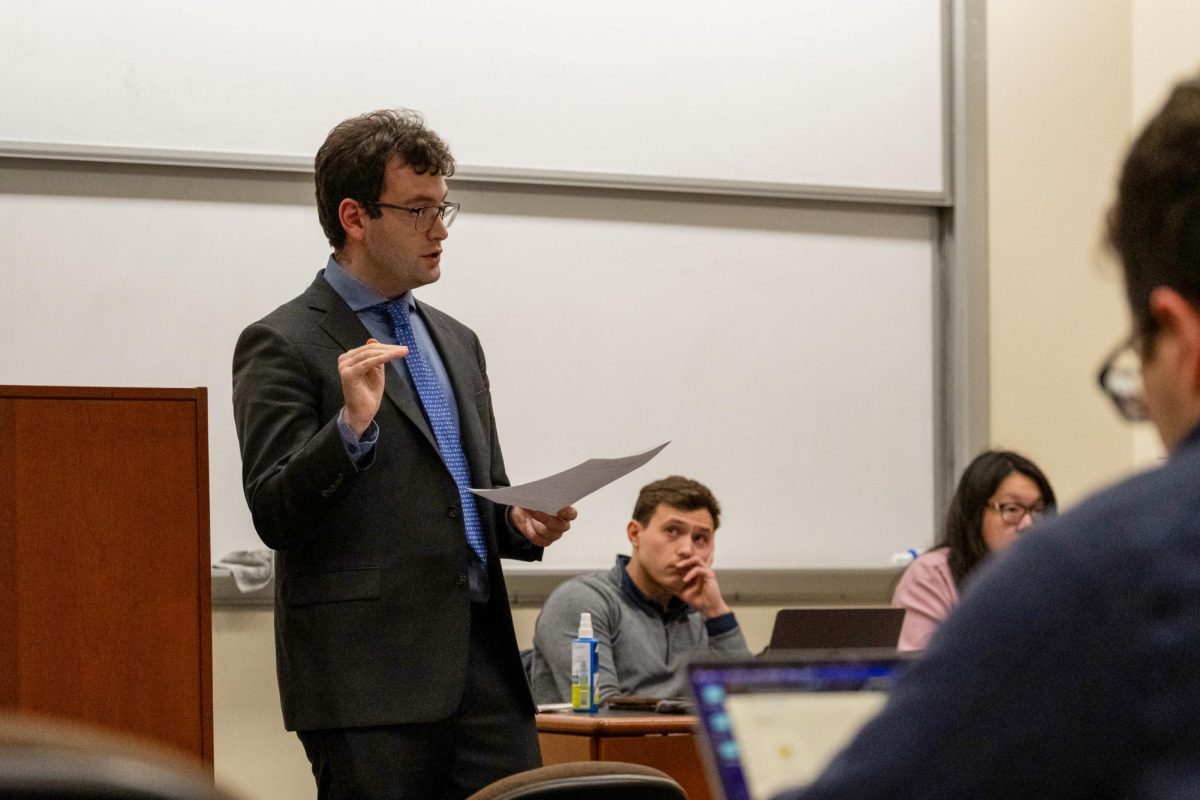
This post was written by Hatchet reporter Rachel Ventresca.
The GW chapter of Reporters without Borders hosted a panel of experts in the School of Media and Public Affairs Wednesday night to discuss press ethics and whistle blowers.
The panel focused on the results of the Jeffrey Sterling court decision, in which Sterling was the first African-American CIA case officer to file a lawsuit against the agency for racial discrimination.
Due to the sensitive content of the evidence to be utilized in the courtroom, Sterling’s suit was dismissed by the court. When classified information was leaked to the press, the prosecution argued that Sterling had disclosed information to the press in retaliation of the rejection of his case.
Here are a few takeaways from the discussion:
1. Whistleblowers v. the Espionage Act
The panelists agreed that the US government’s utilization of the Espionage Act against whistleblowers is an unjust method to achieving indictment.
Jesselyn Radack, the director of National Security and Human Rights at the Government Accountability Project, said officials have misused the Espionage Act to attack whistleblowers rather than to prosecute spies.
Radack said the act should be used to condemn more powerful and well-connected individuals, who often receive lesser or no punishment for similar offenses.
“The government has used the antiquated Espionage Act, a law meant to go after spies, as a bludgeon to intimidate, silence, and imprison whistleblowers,” Radak said.
2. Media: Friend or foe?
Norman Solomon, the founder of the Institute for Public Accuracy, said whistleblower trials do not receive the necessary media coverage to garner public attention because those on trial do not have the same connections as journalists.
Solomon said it’s the media’s responsibility to protect whistleblowers.
“Reporters should fight for themselves, but they should recognize that freedom of the press depends on defending sources as well,” Solomon said.
Matthew Schafer, an attorney at Levine Sullivan Koch & Schulz LLP, argued that journalists are regularly subpoenaed and face jail time in order to protect their sources. He said news organizations and journalists utilize reporter’s’ privilege in order to increase transparency to the benefit of their sources.
3. Prevent future whistleblower injustices
Margaux Ewen, an advocacy and communications officer at Reporters Without Borders, expressed concern over the Sterling case precedent and its effect on government employers who fear the negative effects of relationships with journalists.
Panelists agreed that journalists should create a consistent position to whistleblower cases and not utilize the reporter’s privilege exclusively, and that the government should enact meaningful, effective whistleblowers protection measures.
Holly Sterling, the wife of Jeffrey Sterling, closed the discussion by reading aloud a letter written by her husband.
“I said no to government intimidation and retaliation. I said no to compromising my principles by pleading to a crime I did not commit,” Holly Sterling read. “All the while I was saying yes to doing the right thing not only for myself, but for my country. I took a stand and followed the rules and for this I was targeted.”




